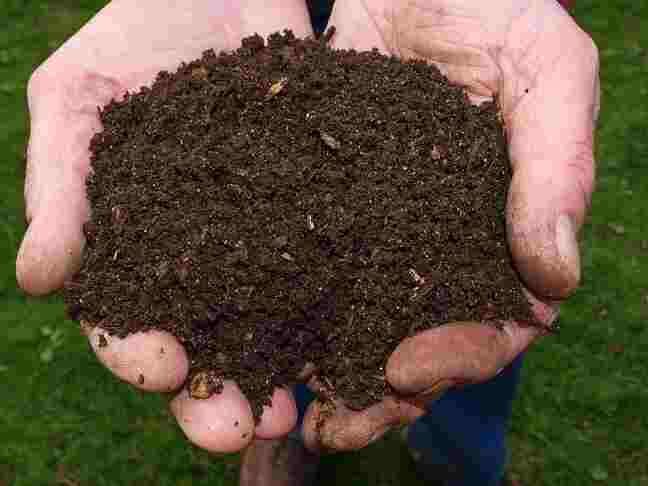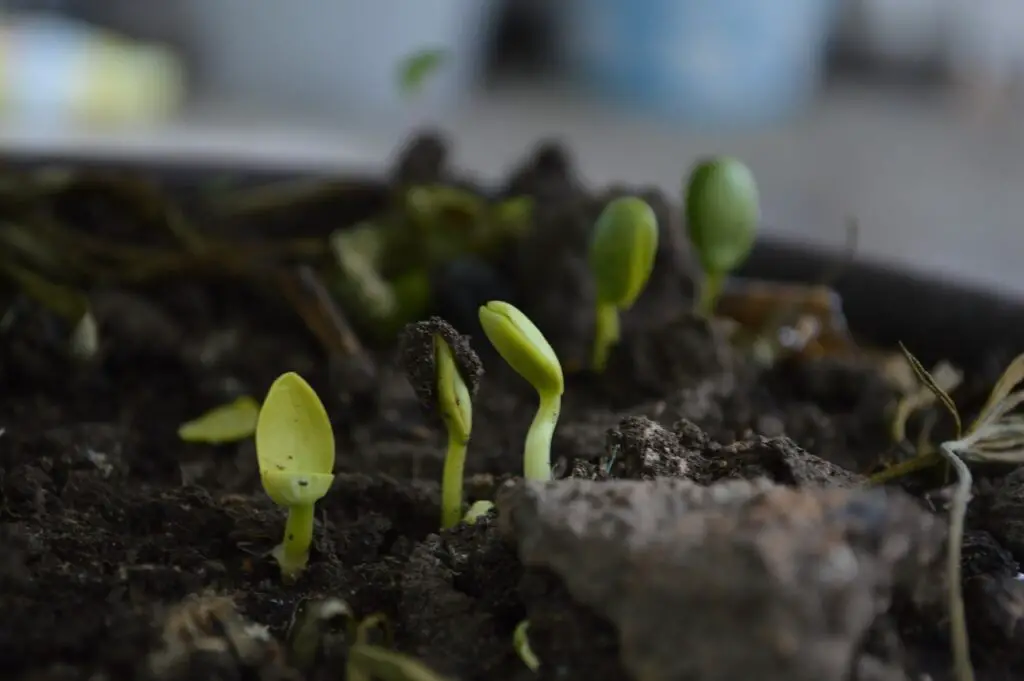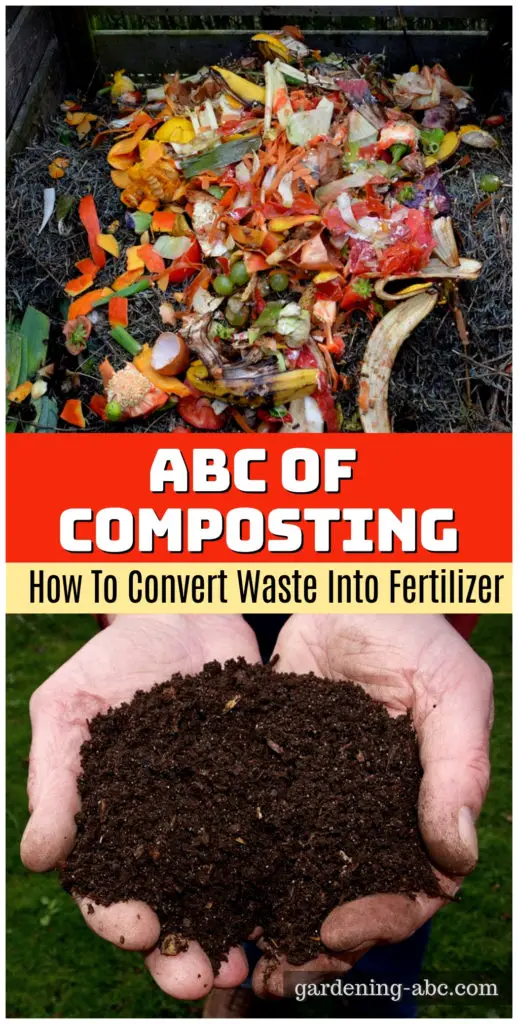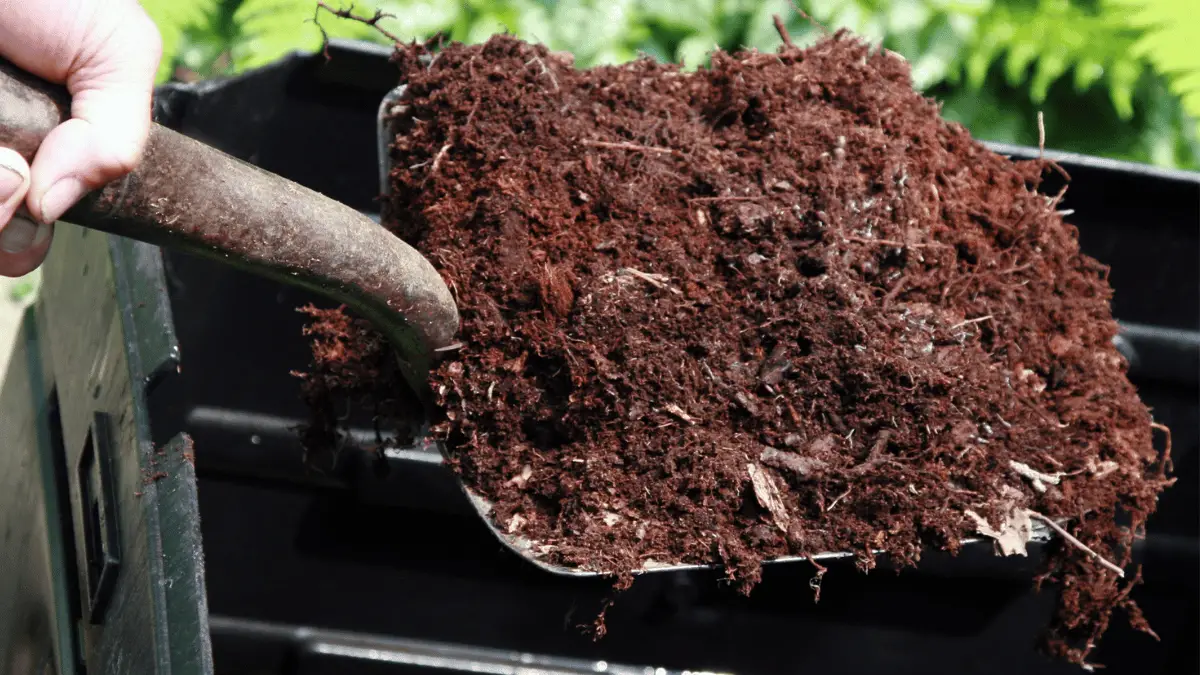We use affiliate links to run our site. When you buy through links on our site, we may earn an affiliate commission, without any added cost to you. Learn more
This is one of the sequels from my earlier blogs about the importance of going Organic and the real meaning of going organic. So if you haven’t read those two articles I strongly recommend you do that.
Compost is an integral part of Organic Gardening. In this article, I want to share some thoughts about the process of home composting. After finishing the article you will know how to make your own compost.
Table of Contents
What is Compost?

Compost is a dark, crumbly, earthy material that results from the controlled decomposition of organic matter. Think of it as nourishment for your garden’s soil created from raw ingredients like leaves, grass clippings, food waste, and other compostable materials. This nutrient-dense humus makes an excellent natural fertilizer.
Benefits of Composting
There are many excellent reasons to start composting your organic waste:
- Improves soil health – Compost contains macro and micronutrients plants need. It increases moisture retention and drainage in the soil.
- Reduces waste – About 30% of household waste is compostable organics. Composting recycles those scraps.
- Saves money – Enriching your garden with compost is much cheaper than buying fertilizer.
- Creates healthy plants – Compost boosts soil microbiology and plant resistance to disease.
- Lowers greenhouse gases – Composting avoids methane emissions from landfill organics.
Composting Basics: Greens, Browns & More
Certain ingredients and conditions are necessary for productive composting. Blending “greens” and “browns” provides a balanced diet for the microbes digesting the materials.
Greens
Nitrogen-rich fresh materials like food scraps, grass clippings, coffee grounds, and manure. Provides nutrients for microbes.
Browns
Carbon-rich dried materials like leaves, wood chips, sawdust, and paper. Provides energy for microbes and air pockets.
The ideal carbon-to-nitrogen ratio for composting is around 25-30 parts carbon to 1 part nitrogen. Watch your ratios when adding ingredients!
Other Composting Essentials:
- Moisture – Compost should be about as moist as a wrung-out sponge, around 50-60% moisture. Too wet or dry slows decomposition.
- Oxygen – Turning the pile fluffs it up to circulate air needed by aerobic bacteria.
- Particle size – Blend different fragment sizes but avoid extremely large pieces or fine dust.
- Temperature – Pile should heat up to at least 140°F to kill pathogens and weed seeds.
Composting Methods
There are several techniques for making compost at home. The method depends on your space, volume, and time frame.
Compost Pile
This basic heaping pile is easy to start by layering greens and browns. Turning the pile and monitoring moisture accelerates decomposition. Easy to harvest finished compost from the bottom when ready.
Compost Bin
Pre-made bins neatly contain the compost while allowing air circulation. Easy access for turning and adding scraps. Keeps pests out. Many styles are available.
Tumbler Composter
Rotating drum tumblers makes mixing and aeration effortless. Compost finishes faster with regular tumbling to blend and oxygenate the contents.
Vermicomposting
Using a bin with bedding and red wiggler worms can compost small amounts of kitchen waste indoors, producing vermicompost. Worm castings are very nutrient-dense!
Troubleshooting Compost Problems
Composting is a science, but not an exact one since it relies on natural processes. Paying close attention and making adjustments will help optimize your compost production.
- Bad smell – Too much nitrogen-rich material or lack of oxygen. Turn the pile and add carbon-rich browns.
- Ammonia smell – Too much nitrogen. Mix in carbon sources like leaves or woodchips.
- Won’t heat up – Add more greens, reduce particle size, and remix materials to aerate.
- Takes too long – Could be too dry, large pieces, or needs more nitrogen. Check conditions and adjust.
With proper conditions, active compost can finish in 2-3 months. Finished compost is dark, crumbly, and earthy-smelling.
Using Compost in Your Garden

Mature compost produces wonderful benefits when worked into garden beds, lawns, or potting mixes. It slowly releases nutrients, improves soil texture and microbiology, and helps retain moisture.
When preparing beds, simply mix 1-3 inches of compost into the top 6-8 inches of existing soil before seeding or transplanting plants.
Compost also makes excellent mulch around plants when spread 1-3 inches thick on beds.
The Possibilities of Compost
Composting unlocks incredible possibilities. On a small scale, it reduces your personal waste while fueling your home garden organically. Broadly, it offers a solution for diverting organic refuse from landfills where it becomes polluted.
Composting can replenish the very soil we depend on for food production. It exemplifies the principles of the circular economy by cycling our own waste stream back into resources.
Compost is organic. It's free and it's easy to make. Click To TweetFinal Thoughts:
Hopefully this beginner’s guide provides everything you need to get started with reaping the many benefits of composting your organic kitchen and yard waste.
Follow these tips and with some patience, you’ll be growing gorgeous plants in vibrant, nourishing soil created by your own two hands. Get composting!
Don’t Forget To PIN IT

Recommended Read: Let it Rot!: Gardener’s Guide to Composting
Frequently Asked Questions (FAQs):
How Much Does A Cubic Yard Of Compost Weigh?
It can vary depending on its moisture content, composition, level of decomposition, and other factors. On average, a cubic yard of compost typically weighs between 1,000 to 1,200 pounds (454 to 544 kilograms).
Is compost the same as manure?
Compost and manure are different. Compost is the result of decomposed organic matter, while manure is animal waste used as a fertilizer. Compost is usually more balanced in nutrients and less likely to contain pathogens.
Can compost be used as a type of soil?
Compost is not a type of soil but a soil amendment. It improves the quality of soil by adding nutrients, enhancing structure, and promoting microbial activity.
Can compost be used as a fertilizer?
Yes, compost is often used as a natural fertilizer due to its nutrient-rich content. It provides plants with essential elements like nitrogen, phosphorus, and potassium.
How does composting benefit the environment?
Composting reduces greenhouse gas emissions, conserves landfill space, minimizes water pollution, and supports sustainable agriculture by recycling organic materials.
Amazon and the Amazon logo are trademarks of Amazon.com, Inc, or its affiliates.

since i am living in city, it is not possible to use animal matter then what is the alternative to this/
Thank you. Am learning much from your blog.